Disclosure: This article contains affiliate links. We may earn a commission from purchases at no extra cost to you, which helps our travel content.
There's something almost sacred about the connection between land and plate in Vermont—a relationship I've come to revere during my seasonal pilgrimages to this northeastern corner of conscious consumption. Essex Junction, often overlooked in favor of Burlington's bustling food scene, reveals itself as the beating heart of Vermont's culinary identity when you take the time to look closer. As the maple trees transform into a tapestry of amber and crimson, the town's markets overflow with harvest bounty, and local chefs work their magic with ingredients sourced just miles—sometimes mere feet—from their kitchens. This weekend journey through Essex Junction isn't just about indulging in exceptional flavors; it's about understanding how a community can nourish both body and environment through thoughtful food practices that honor centuries of agricultural tradition while embracing innovative sustainability.
The Five Corners Farmers Market: Where Community and Agriculture Converge
My Saturday mornings in Essex Junction invariably begin at the Five Corners Farmers Market, where the crisp autumn air carries the scent of fresh apple cider and wood-fired bread. This isn't just a place to shop—it's where the community's food story unfolds in real time.
On my most recent visit, I arrived just after 9 AM, notebook in hand and my trusty insulated market tote ready to be filled with the week's treasures. The market forms a natural hub where farmers, artisans, and neighbors exchange not just goods but knowledge and connection.
"We've been growing these heritage tomatoes for twenty-three years now," explains Eleanor, a silver-haired woman whose weathered hands cradle a vibrant Cherokee Purple tomato. "The seeds came from my grandfather's farm in the Northeast Kingdom." This oral history of agriculture happens at every stall—stories of seed saving, regenerative practices, and climate adaptation strategies passed between generations.
The market's zero-waste initiative particularly impresses me: vendors use compostable packaging, shoppers bring reusable containers, and a community composting station ensures food scraps return to local farms. It's a microcosm of the circular economy that Vermont has embraced long before it became fashionable elsewhere.
As I sip spiced cider and watch children learn to identify different apple varieties at an educational booth, I'm reminded that markets like these aren't just about commerce—they're classrooms without walls, teaching food literacy through direct experience.
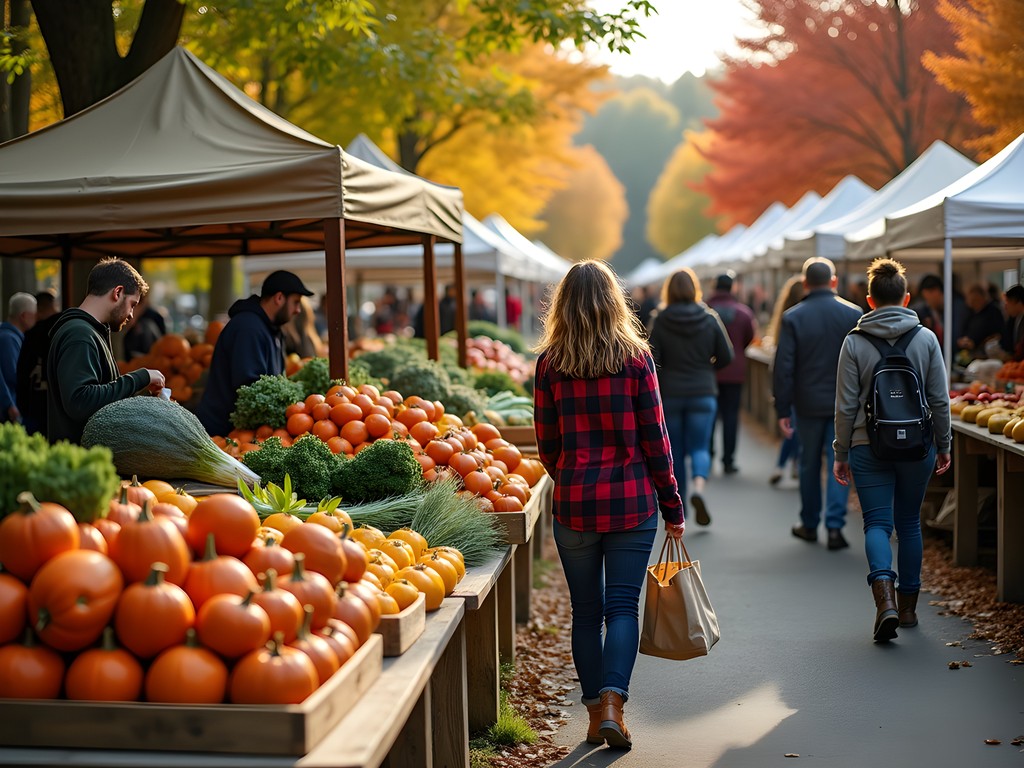
💡 Pro Tips
- Arrive before 10 AM for the best selection of seasonal produce and baked goods
- Bring small bills and coins for easier transactions with vendors
- Ask farmers about their less familiar vegetables—they often share fantastic recipes
Sweet Traditions: Vermont's Maple Culture in Essex
"It takes about 40 gallons of sap to make one gallon of maple syrup," explains Jim Cochran as he leads me through his family's sugar house just outside Essex Junction. The economics of maple production have always fascinated me—this labor-intensive process that transforms clear, barely-sweet tree sap into liquid gold represents Vermont's agricultural persistence perfectly.
Jim's operation, Cochran's Maple Products, sits on land that's been in his family for five generations. While the fundamentals haven't changed—tapping trees, collecting sap, boiling it down—the technology certainly has. Solar panels now power much of the evaporation process, and a complex tubing system has replaced the romantic but inefficient bucket collection method.
"We're producing cleaner energy than we use," Jim notes proudly, showing me the monitoring system that tracks their carbon footprint. "Sustainable doesn't just mean doing less harm—it means actually improving the land we work."
The tasting portion of my visit reveals maple's remarkable complexity. From delicate golden syrup with subtle vanilla notes to robust Grade B with its molasses-like intensity, each variety tells the story of the season, soil, and specific trees that produced it. I leave with a bottle of bourbon barrel-aged maple syrup that will transform my weekend pancakes for months to come.
For those wanting to dive deeper into maple culture, I recommend bringing along a field guide to help identify different maple species and understand the science behind this sweet tradition. The knowledge enhances the tasting experience immeasurably.
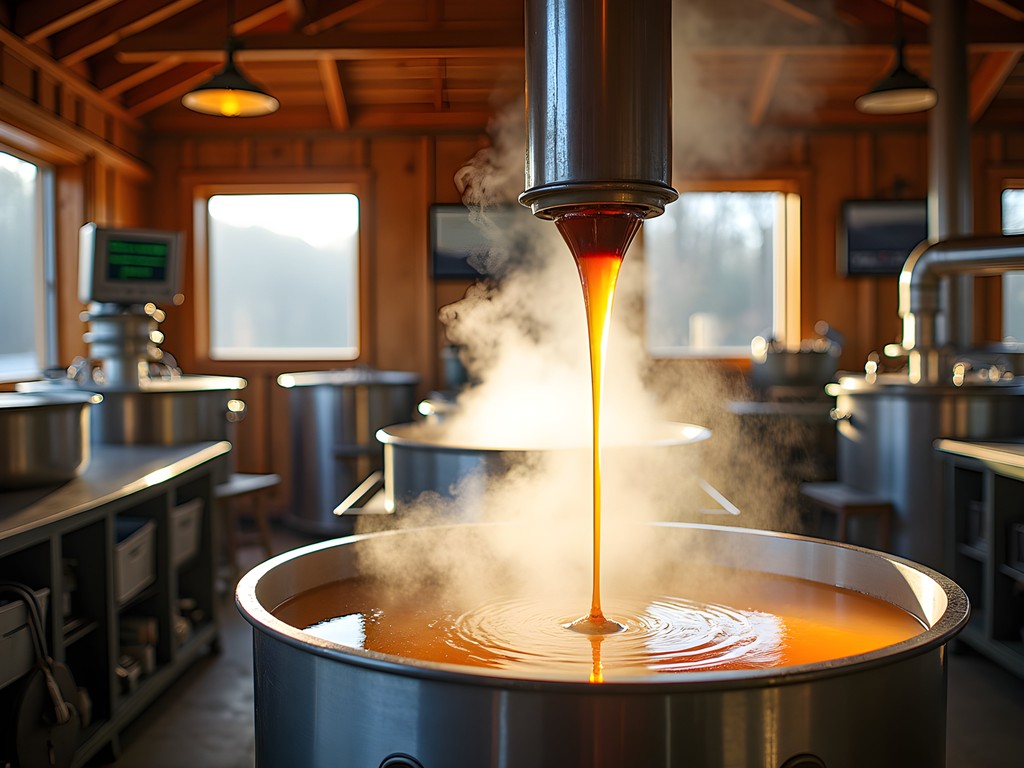
💡 Pro Tips
- Visit sugarhouses during weekdays for more personal attention and in-depth conversations with producers
- Sample different grades of maple syrup side-by-side to understand the subtle flavor differences
- Look for maple products beyond syrup—maple cream, maple sugar, and maple vinegar offer new culinary possibilities
Farm-to-Table Reimagined: Essex Culinary Resort & Spa
The term "farm-to-table" has become so ubiquitous in American dining that it sometimes loses meaning. At Essex Culinary Resort & Spa, however, they've reclaimed the concept by creating what might be the shortest supply chain I've ever witnessed—a journey measured in footsteps rather than miles.
The resort's on-site garden supplies much of what appears on your plate at their flagship restaurant, Junction. During my fall visit, I participated in their "Harvest, Cook, Dine" experience, which begins with collecting ingredients alongside Chef Jean-Louis in the resort's extensive gardens.
"This is education disguised as luxury," I note in my journal as we pluck purple carrots from the soil and snip fragrant rosemary. The resort has transformed traditional hospitality by making the educational component as important as the comfort.
In the teaching kitchen, our small group transforms our harvest into a seasonal feast under Chef Jean-Louis' guidance. My hands still smell of garlic and thyme as we sit down to enjoy the fruits of our labor—roasted root vegetables with maple glaze, herb-crusted local lamb, and an apple galette that makes me reconsider my relationship with pastry.
What impresses me most is the resort's commitment to making sustainability visible rather than hiding it behind kitchen doors. Compost systems, rainwater collection, and energy-efficient equipment are all part of the tour. The message is clear: luxury and environmental responsibility aren't mutually exclusive.
For couples seeking a deeper connection with Vermont's food culture, I recommend booking the cooking class package experience, which includes accommodations, classes, and a beautiful cookbook to continue your culinary education at home.
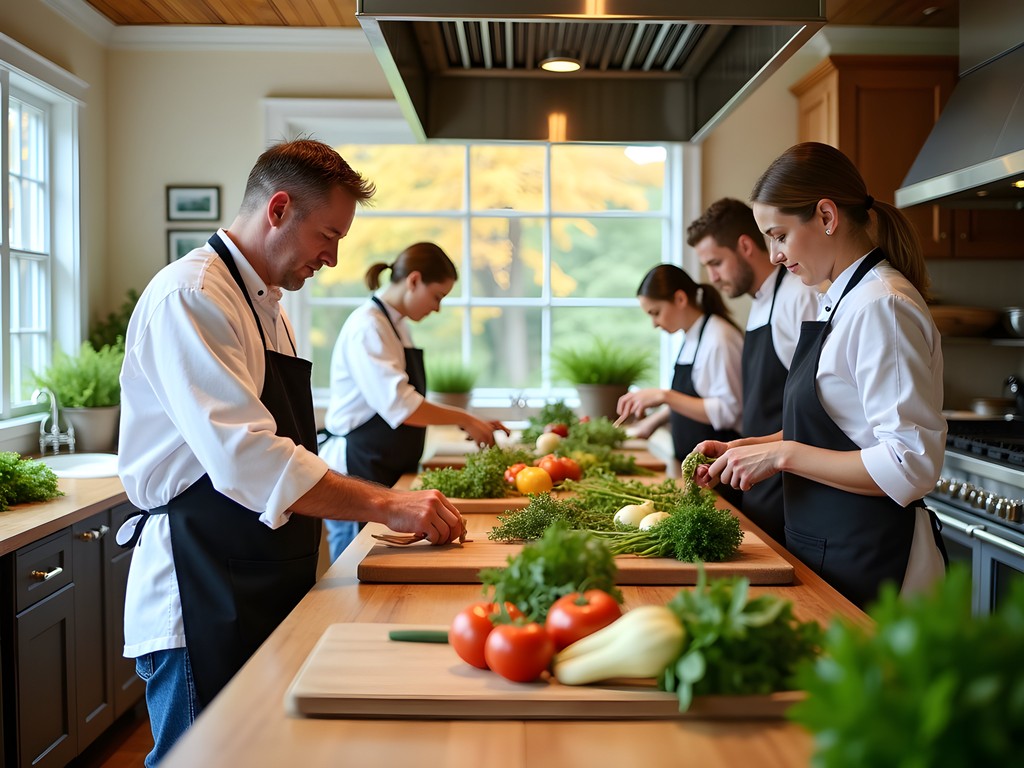
💡 Pro Tips
- Book cooking experiences at least two weeks in advance as they fill quickly, especially during peak foliage season
- Request the garden-view rooms to watch the resort's agricultural activities throughout your stay
- Save room for the cheese course featuring Vermont's award-winning artisanal selections
Artisanal Cheese Trail: Vermont's Living Dairy Tradition
"Cheese is alive," declares Marisa Mauro of Ploughgate Creamery as she gently presses a knife into a wheel of her cultured butter-enriched cheese. "It's constantly evolving, responding to its environment." This philosophy perfectly captures Vermont's approach to artisanal cheese—it's not just food production but a dynamic relationship between land, animals, and human craft.
Essex Junction serves as an ideal base for exploring Vermont's famous Cheese Trail, with several notable producers within a 30-minute drive. I've created a self-guided tour that reveals the diversity of the state's dairy traditions, from fresh chèvre to aged alpine styles.
At Shelburne Farms, a nonprofit working farm just south of Essex, I walk among Jersey cows grazing on rolling pastures before watching cheesemakers transform their morning milk into award-winning cheddar. The operation exemplifies how traditional agricultural models can be adapted for modern environmental challenges—their rotational grazing practices actually improve soil health and sequester carbon.
"We're not just preserving tradition," explains head cheesemaker Tom Jennison. "We're evolving it to meet today's environmental realities."
Further north at Green Mountain Blue Cheese, I discover how European traditions have been transplanted to Vermont's terroir, creating something entirely new. Their cave-aged blue cheese develops complex flavors from the specific microbiome of their aging rooms—a taste literally impossible to replicate elsewhere.
For the serious cheese enthusiast, I recommend bringing a cheese journal to document your tastings. The sensory experience of Vermont cheese deserves thoughtful reflection, and having a dedicated place to note flavor profiles, textures, and pairings enhances the educational value of your culinary adventure.
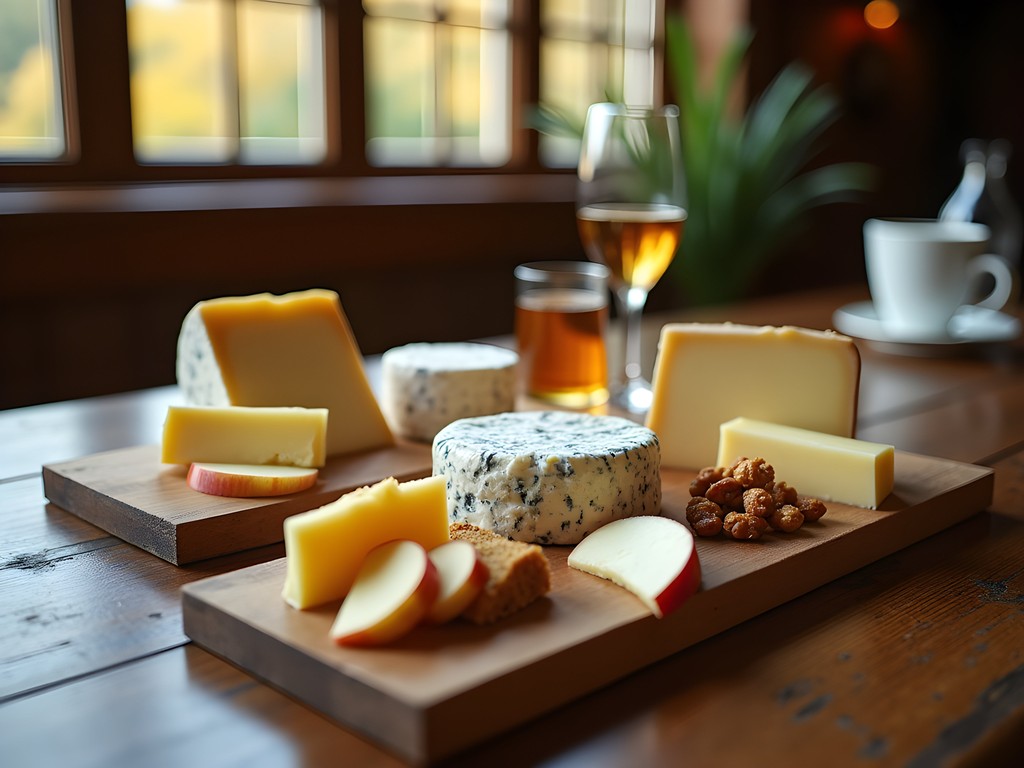
💡 Pro Tips
- Call smaller creameries ahead of time to confirm visiting hours, as some operate seasonally or by appointment only
- Bring a cooler with ice packs in your car to safely transport your cheese purchases
- Ask cheesemakers about their favorite pairings—many have unexpected suggestions beyond the usual wine and crackers
Sweet Endings: Sustainable Desserts and Ethical Chocolates
My exploration of Essex Junction's culinary landscape concludes with what might be its sweetest cultural contribution—a revolutionary approach to dessert that proves indulgence and ethics can coexist beautifully.
At Sweet Simone's, a bakery tucked into a renovated historic building near the town center, owner Lisa Curtis has created what she calls "transparent treats." Each pastry comes with a complete ingredient story—not just what's in it, but where each component originated. The cardamom in my morning bun was sourced through a women's cooperative in Guatemala; the flour in their sourdough comes from wheat grown and milled less than 50 miles away.
"Dessert has been disconnected from its agricultural roots for too long," Lisa tells me as we sip remarkably complex hot chocolate made with single-origin beans. "We're trying to restore that connection, one cookie at a time."
A few blocks away, I discover what might be Vermont's most environmentally progressive chocolate operation. NU Chocolat, a family-owned bean-to-bar chocolate maker, has reimagined the chocolate supply chain from the ground up. Their direct relationships with cacao farmers in South America ensure fair compensation, while their production facility uses renewable energy and compostable packaging.
The educational component is front and center—each chocolate bar includes information about cacao varietals, growing regions, and the specific farmers who cultivated the beans. It transforms a simple pleasure into an opportunity for deeper understanding.
For those wanting to continue their education at home, I recommend the chocolate tasting kit, which includes beans from different regions along with tasting notes to develop your palate for chocolate's remarkable complexity.
As I savor a bonbon filled with local maple cream, I reflect on how Essex Junction's sweet artisans are redefining luxury—not as exclusivity or excess, but as mindful appreciation of carefully crafted flavors that honor both people and planet.
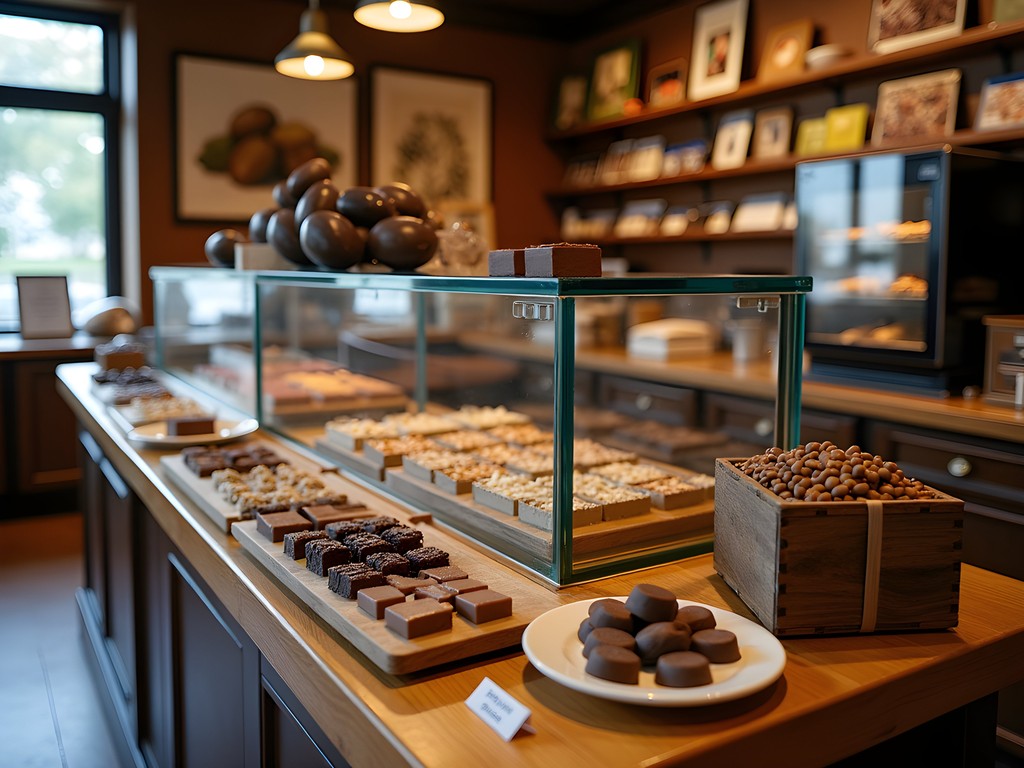
💡 Pro Tips
- Visit bakeries early in the day for the freshest selection, especially on weekends
- Ask for the origin story behind specific desserts—many artisans love sharing the narrative behind their creations
- Look for chocolate-making workshops at NU Chocolat, which offer hands-on experience with ethical cacao
Final Thoughts
As I pack my car to leave Essex Junction, my cooler bag filled with cheese, chocolate, and maple treasures, I'm struck by how this small Vermont community has quietly revolutionized the relationship between food, education, and environmental stewardship. The culinary experiences here aren't just delicious—they're transformative, challenging visitors to reconsider their own food systems back home. Essex Junction proves that sustainable gastronomy isn't about deprivation but about deeper connection—to farmers, to land, to tradition, and to innovation. Whether you're a dedicated foodie or simply someone who appreciates thoughtful hospitality, this corner of Vermont offers a template for how tourism and environmental education can nourish each other. I invite you to taste for yourself what mindful cultivation of both land and palate can produce. The maple-sweetened memories will linger far longer than the treats themselves.
✨ Key Takeaways
- Essex Junction offers an accessible entry point to Vermont's sustainable food culture beyond the more touristy Burlington area
- Participating in hands-on culinary experiences creates deeper educational connections than dining alone
- The fall harvest season provides the richest diversity of flavors and agricultural activities for food-focused travelers
📋 Practical Information
Best Time to Visit
September through mid-October for peak harvest and fall foliage
Budget Estimate
$150-250 per day per couple (accommodations, meals, activities)
Recommended Duration
2-3 days (weekend)
Difficulty Level
Easy

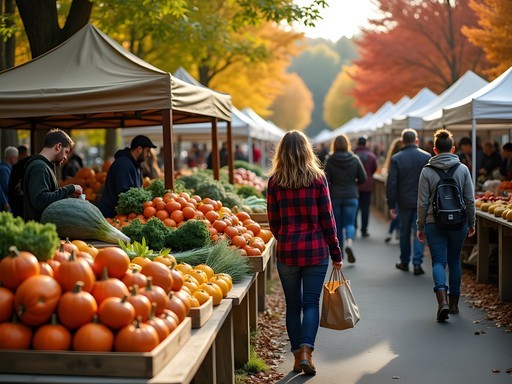
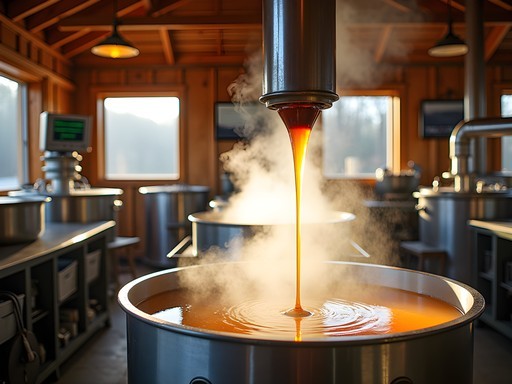
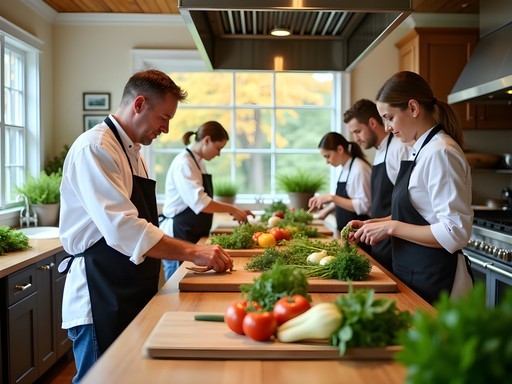
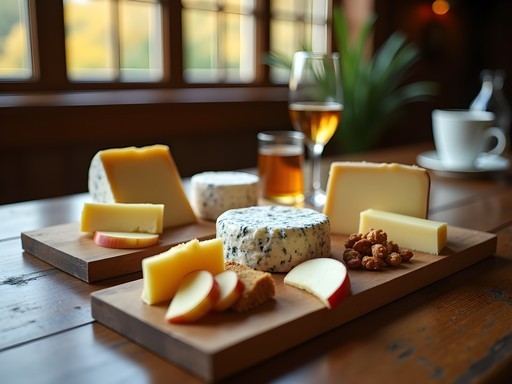
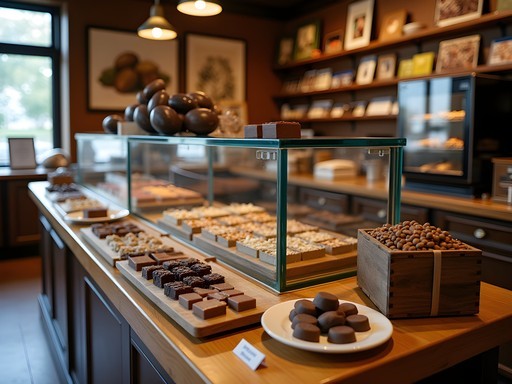


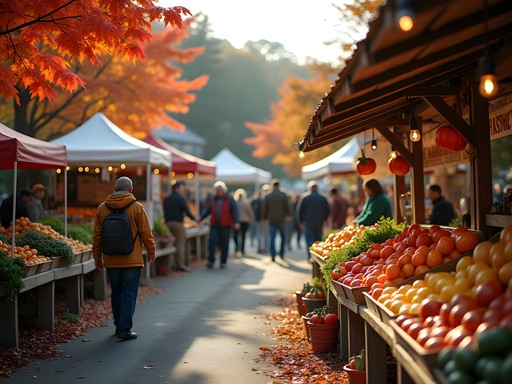
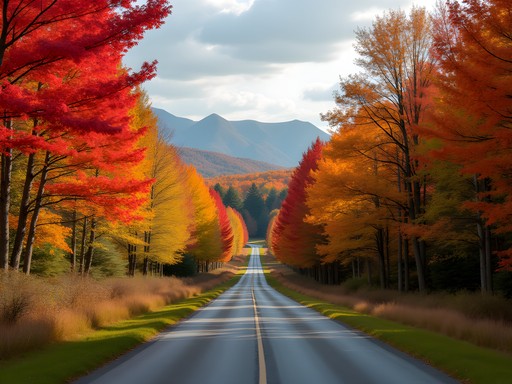

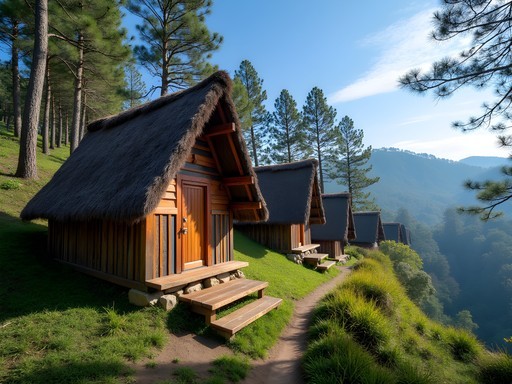
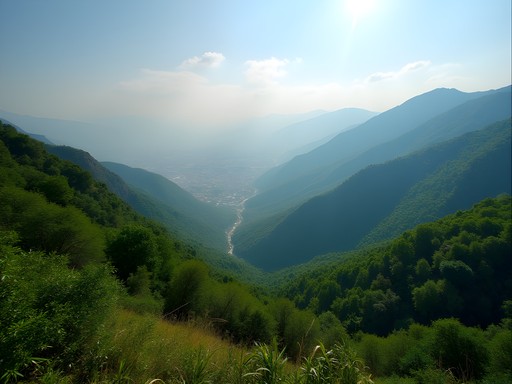

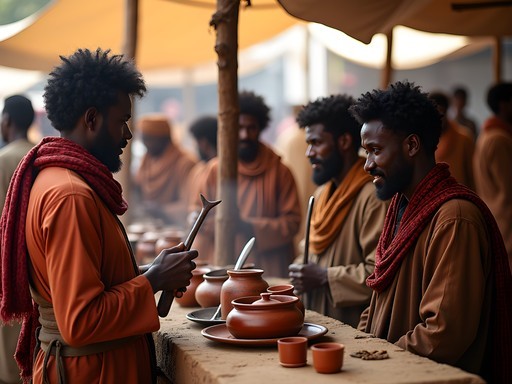
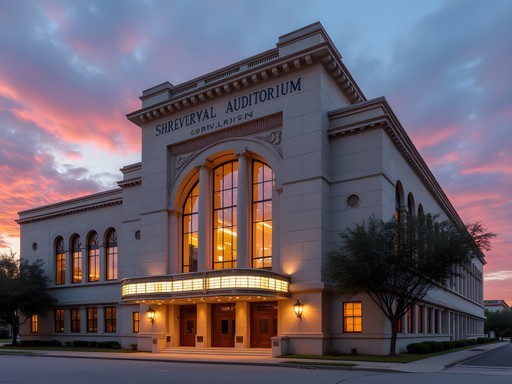
Comments
Taylor Moreau
Excellent piece, Lionel. The cheese trail segment particularly resonates - I've covered similar artisanal dairy routes in the Cotswolds and there's something universal about that connection between cheesemaker and land. For readers planning a visit: the Vermont Cheese Council offers a passport program that's quite good value. Also recommend timing your visit around the Vermont Cheesemakers Festival if you can manage it.
Savannah Torres
Beautiful piece, Lionel. The way you captured the farm-to-table philosophy really resonates. We stayed at the Essex Culinary Resort last spring and my kids still talk about the cooking class we took there. The chef let them make their own pasta from scratch with local eggs and flour from a nearby mill. It's that kind of hands-on connection to food that makes Vermont special. We also discovered that the resort has an amazing kitchen store where we picked up some local pottery - still using those bowls every morning for breakfast!
citytime
Is the Culinary Resort worth the price? Looks amazing but seems pricey
Taylor Moreau
I stayed there during a business trip to Burlington last year. It's definitely premium pricing, but the cooking classes and farm tours are included which adds value. The restaurant alone is worth a visit even if you don't stay overnight - their tasting menu changes with whatever's fresh from local farms.
summerdiver
Your photos are gorgeous!!
coolace
Never been to Vermont before - is this area good for a long weekend trip? Trying to figure out if we need more time or if 3 days is enough to hit the highlights.
Savannah Torres
Three days is perfect for Essex and the surrounding area! We did a long weekend last year with our two kids and it was just right. You can easily do the farmers market one morning, a cheese trail afternoon, and still have time for hiking or exploring Burlington. The pace is relaxed which is exactly what you want in Vermont.
travelguide
This is SO spot on! I was just in Essex Junction last fall and that farmers market is absolutely the real deal. The maple vendor there (can't remember the name but older guy with the red truck?) gave me like a 20 minute education on sugar grades. Also grabbed some incredible cheddar that I'm still dreaming about. Did you try the apple cider donuts from that bakery stand? They sell out by like 9am on Saturdays!
citytime
What time of year did you go? Trying to figure out best season to visit
travelguide
Late September/early October was perfect. Foliage plus harvest season so the market was totally packed with stuff. Plus cooler weather for eating all that cheese lol
waverider
Pro tip for anyone going - the maple producers around Essex often do free tastings if you just stop by. We found this tiny sugar shack off Route 15 that wasn't even advertised and the owner spent like 30 minutes showing us his whole operation. Bought a gallon jug straight from the source for way less than retail. Vermont people are genuinely the friendliest.
George Hayes
Lionel, this brought back such great memories! We took our kids to Vermont last summer and did a similar food tour through the Northeast Kingdom. My daughter (she's 8) was absolutely mesmerized watching the cheese-making process at Jasper Hill. There's something magical about showing kids where their food actually comes from. We ended up buying way too much cheese and had to grab an extra cooler at a local shop. The maple creemee stands were a huge hit too - became our daily ritual. Vermont really does food culture right.
summerdiver
Jasper Hill is incredible! Did you do the cave tour?
George Hayes
We did! The temperature drop when you walk in is wild. Kids loved it.
oceanclimber
This is my first time hearing about Essex Junction and now I'm totally obsessed!! Is the farmers market open year-round or just seasonal? We're planning a fall trip and I really want to hit up those cheese makers you mentioned. Also how far is it from Burlington? This post has me so excited!!!
Lionel Marshall
The Five Corners market runs May through October typically. You're about 10 minutes from Burlington, so super convenient! Fall is perfect timing for the cheese trail.
oceanclimber
Perfect thank you!!
freeperson
The cheese trail sounds amazing!
Venture X
Premium card with 2X miles, $300 travel credit, Priority Pass